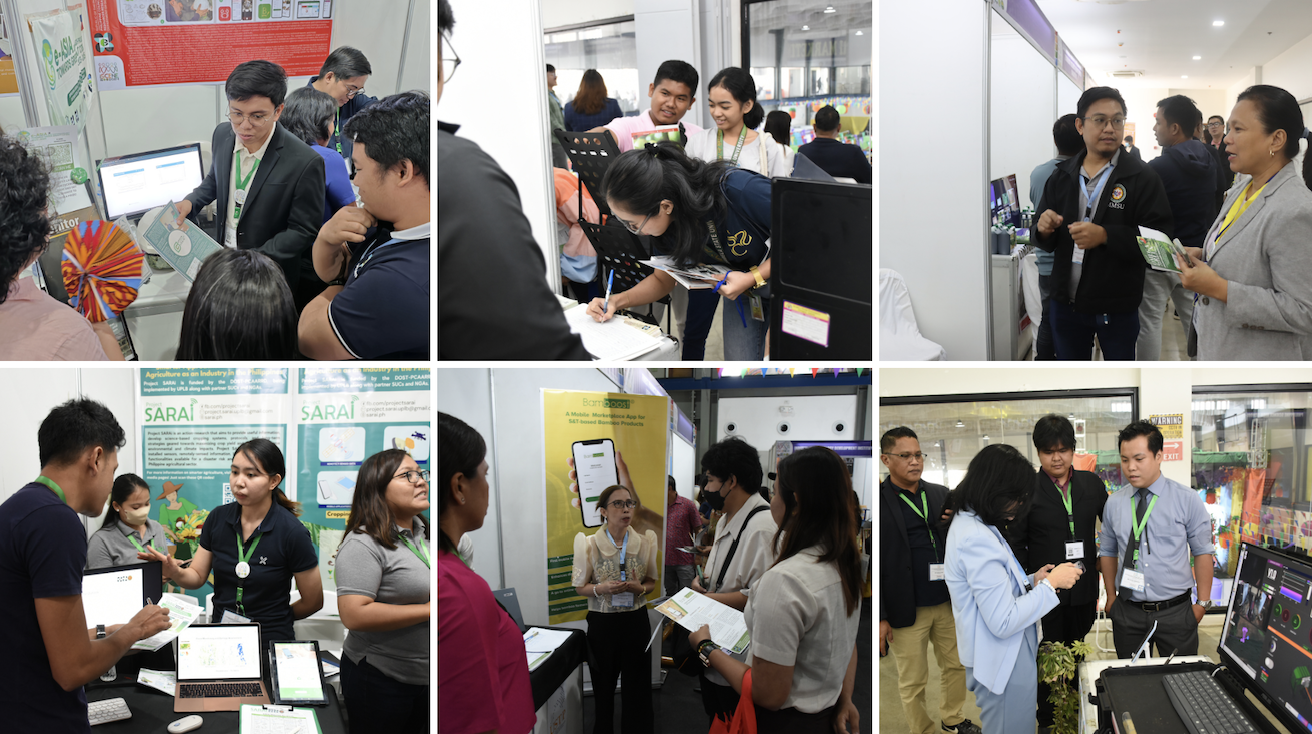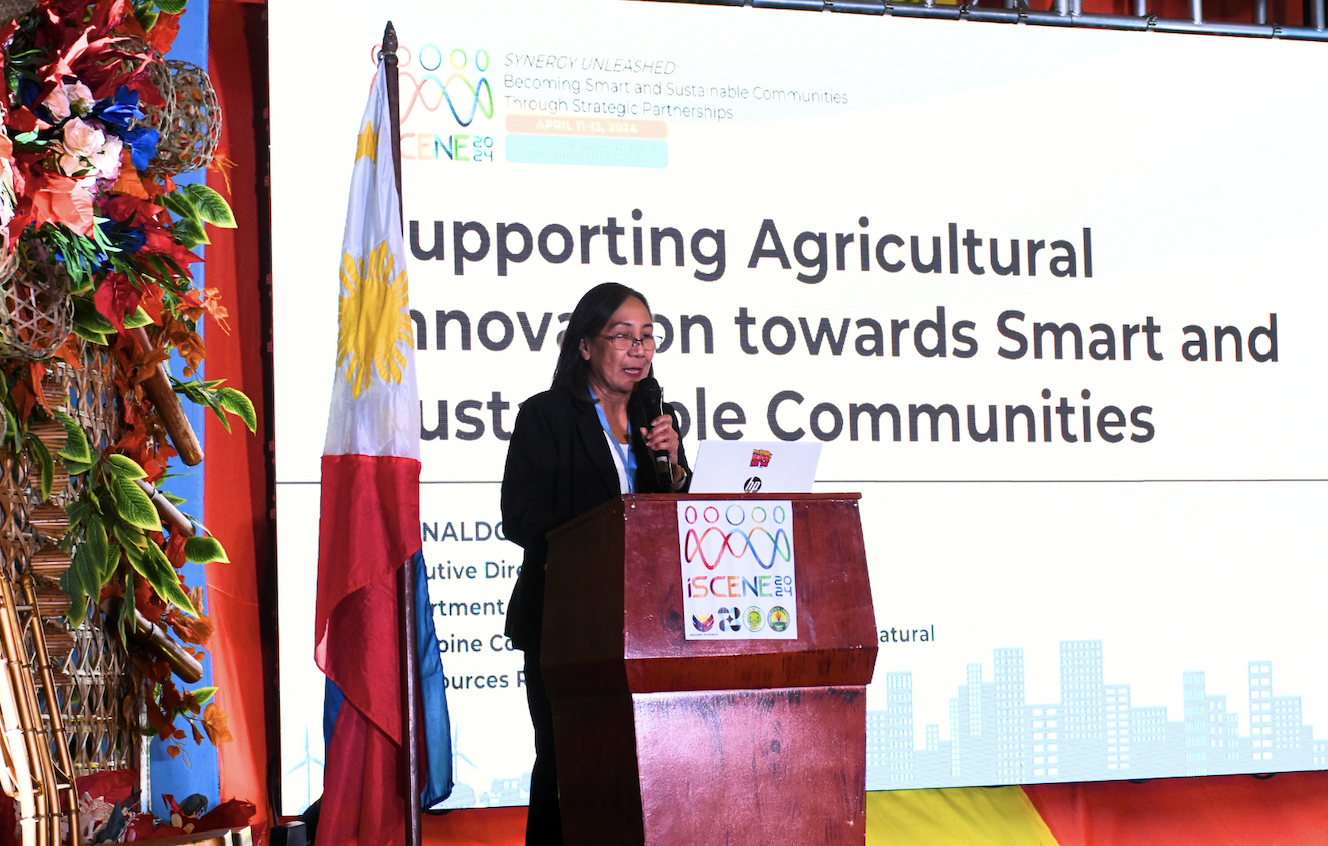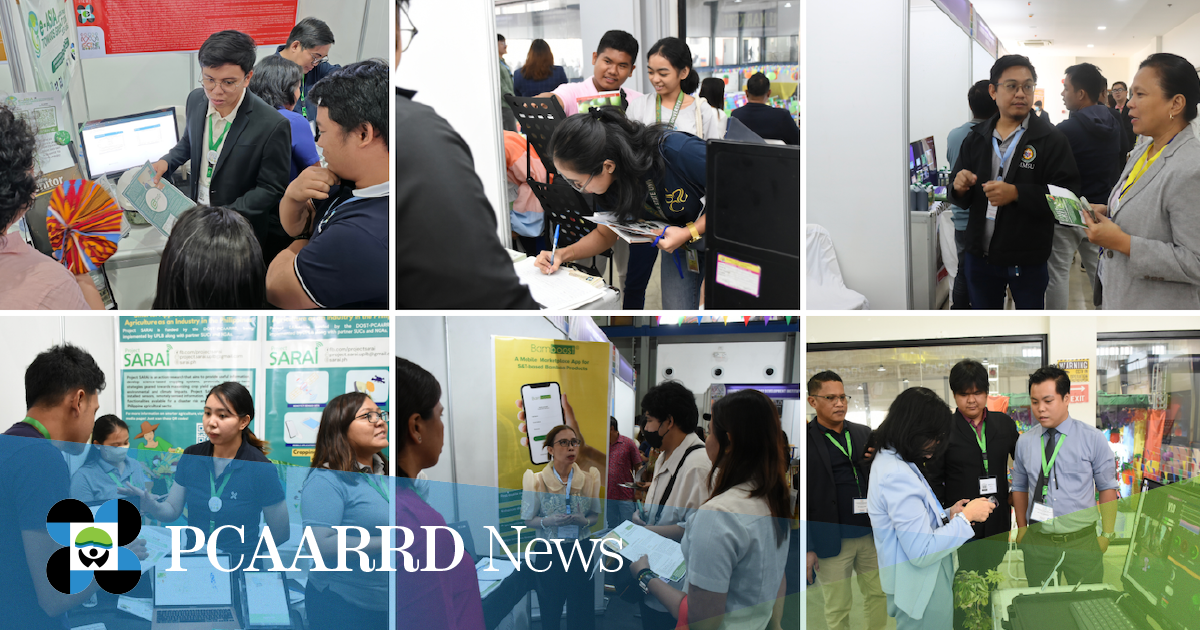Themed "Synergy Unleashed: Becoming Smart Cities Through Strategic Partnerships," the 2nd International Smart and Sustainable Cities & Communities Exposition & Networking Engagement (iSCENE 2024) emphasized the importance of working together to achieve smart and sustainable cities across the country.

The event featured discussions on building strong partnerships between government agencies, academic institutions, and the private sector. This collaborative approach is crucial for the success of the Department of Science and Technology's (DOST) project, "Transforming LGUs towards Society 5.0," which aims to create a future-proof society that integrates human and technological advancements.
The Philippine Council for Agriculture, Aquatic and Natural Resources Research and Development (PCAARRD) of DOST championed the creation of smart and sustainable cities as part of its banner programs on research and development (R&D) results utilization. The event was held last April 11–13, 2024 at the 2nd iSCENE held in Cauayan City, Isabela.
During iSCENE 2024’s technology exhibition, the Council has highlighted the following SMART technologies that are being developed and/or prepared for commercialization under its R&D initiatives:
- Smarter Approaches to Reinvigorate Agriculture Industry in the Philippines (SARAi), a UPLB-led and DOST-PCAARRD-funded project that uses precision agriculture technologies to develop decision support models for crop forecasting, crop advisories (when to plant, when to irrigate, when to harvest, etc.) and early warning systems. At present, the SARAi system and its protocols cover the following crops: rainfed rice, corn, coffee, cacao, coconut, banana, sugarcane, tomato, and soybean.
- BamBoost®, a mobile marketing app with a primary goal of linking bamboo farmers, craft makers, and manufacturers to a wider market of buyers in the country and abroad to promote the use of sustainable & eco-friendly bamboo products. It is the first app that exclusively carries only bamboo products to market and promote the arts and crafts of Filipino communities.
- i-POND, a technology that involves development of a long-range wide area network (LoRaWAN)-based automated water quality control and monitoring system for shrimp farms. This automated system is engineered to continuously assess water quality parameters including temperature, pH level, dissolved oxygen, and salinity within the aquatic environment that allows users to access the real-time water quality data remotely on mobile phones and computers via the Internet.
- Crabifier, a free and accurate Android-based mobile application that can identify the species of juvenile crablets of the genus Scylla. It allows the mangrove crab farmers to pick their species of choice from juveniles captured from the wild and to confirm the species being sold by the traders.
- DOST-PCAARRD eLibrary, a free access website that offers a wide range of agriculture, aquatic, and natural resources (AANR) materials. It includes books, journals, theses, technical reports, and more. By transitioning to an online platform, DOST-PCAARRD aims to efficiently share scientific information with its R&D partners and the public.
- Agroinformatics Solution, created by Isabela State University, is a robust and versatile platform leveraging technology to empower cassava farmers. It provides quick disease identification, disease management advisory, and comprehensive farm management. Among its features and services include: User management, Farm management, E-consultation, Treatment schedules, Monitoring cassava diseases, Data analytics, and Incident report generation.
- Green Freshness Classification System (GFCS), a technology that uses Computer Vision and Gas Sensors, features an electronic nose (e-nose) for on-site (in situ) detection of fungicide residue on freshly harvested lettuce. Developed by De La Salle University, the e-nose utilizes seven gas sensors and a powerful computational intelligence (CI) model embedded within the Arduino module.
- Garlitech, a garlic disease forecasting application being developed by the Mariano Marcos State University (MMSU) through the Niche Centers in the Regions for R&D (NICER): Garlic and Other Agri-Food Condiments Program. It is a mobile application prototype that can forecast the severity and risks of garlic diseases in an area using the prevailing weather data. It is also designed to provide sustainable management practices to minimize potential production losses caused by the forecasted disease/s.
Alongside the impressive exhibits of cutting-edge technologies, iSCENE 2024 also offered a dynamic program of events on the main stage that showcased the latest technologies that are accelerating the Philippines towards the creation of smart and sustainable cities and engaged everyone to put them into action.
The focus shifted from physical exhibits to the power of collaboration at the next mainstage event, a series of panel discussions featuring international and national stakeholders. Here, experts delved deeper into the theme, "Synergy Unleashed," sharing real-world examples of successful partnerships that have driven smart city initiatives in the Philippines, Thailand, and Korea.
The second day focused on plenary sessions for the following topics: (1) Smart and Sustainable Communities in Global Perspective; (2) Synergistic Approach in Building Entrepreneurship and Innovation-Driven Nation; (3) Public Private Academe Partnership (PPAP): Strategic Model for SMART and Sustainable Communities RA 11966; (4) Start-up Programs in the Philippines; and (5) Sharing of Best Practices and Initiatives of LGU, and (6) Smart Initiatives and Programs of DOST-Attached Agencies.

On behalf of DOST-PCAARRD Executive Director, Dr. Reynaldo V. Ebora, OIC Director Maria Teresa L. De Guzman of PCAARRD’s Agricultural Resources Management Research Division (ARMRD) presented the Council’s Smart Technologies for Sustainable Agriculture, Smart Initiatives in the AANR, and the Strategic Approach towards Agricultural Innovation during the DOST-Attached Agencies presentation. She also emphasized DOST-PCAARRD’s strategic approach towards agricultural innovation and highlighted the Council’s banner programs that will drive the country’s AANR sector towards the attainment of the country’s Ambisyon Natin 2040.
With its successful conclusion, iSCENE 2024 became a stronghold for our country’s vision of achieving a smart and sustainable future. With cities and local government units partaking in the action of leveraging technologies and partnerships to create a better tomorrow, the Philippines is right on its path of achieving its vision of “provision of enabling technologies for applications beneficial to society” by 2026.

